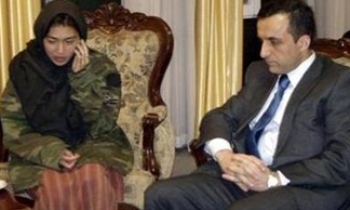KUALA LUMPUR, Nov 22 (Bernama) -- The Sixth Conference of the Ministers of Information of Non-Aligned Countries (Cominac VI) ended here Tuesday with the endorsement of the Malaysia-mooted proposal for the establishment of the Non-Aligned Movement (NAM) News Network (NNN).
The more than 70 ministers who supported the proposal agreed that the NNN would effect a more sustained and efficient flow of news and information among NAM members and other developing countries.
In the 11-page Kuala Lumpur Declaration issued at the close of the four-day meeting, the ministers thanked Malaysia for its generous offer to underwrite the start-up cost to establish the NNN and called on all members to support the network by actively participating in it.
The Internet-based NNN will replace the Non-Aligned News Agencies Pool (Nanap) which had been inactive for many years due to declining support from members resulting from technical constraints, including the advancement of technology.
Acknowledging the need for a concerted effort by NAM members to expand their information dissemination capacity to complement the international information system, the ministers said the move would boost the development process of its members.
In their review of the global trends in information and communication, the ministers note that the dissemination of dicriminatory and distorted information of events taking place in developing countries continue unabated.
"The ministers reaffirm the need for urgent redress of the imbalances and call for the acceleration of the pace of advancement and consolidation of collaboration among non-aligned and other developing countries in the information and communication process," says the declaration.
It notes that the advancement and decreasing costs of communication links and equipment have now afforded member countries an unprecendented opportunity to increase information linkages among them.
"The ministers reiterate their call for greater investments in the latest Information and Communication technology in efforts to move forward the interests of the respective countries as well as the interests of NAM as a whole," it says.
Touching on the continued imbalances and inequalities in the field of international information and communication, the ministers noted that despite the long struggle for a New World Information and Communication Order (NWICO), the salient objective has yet to be realised.
Although the objectives of NWICO have yet to be fully realised, member countries of NAM have, individually and collectively, made great strides towards attaining a balanced flow of two-way information among themselves and with non-member countries, the declaration says.
The ministers stressed that the self-help and South-South cooperation should be intensified to attain a higher level of activities to strengthen the information and communication infrastructure both at the national and grouping level, it adds.
The ministers also expressed concern over the orchestrated smear campaigns which developing nations have suffered from through biased and distorted western media reports.
They re-emphasised the need for sustained efforts by the mechanism charged with the dissemination of news and information among and about member countries to counter this threat.
The ministers regretted the continued tendency of the western media in stereotyping and profiling of terrorist acts as Muslims.
On the Broadcasting Organisations of Non-Aligned Countries (Bonac), the NAM information ministers agreed that renewed efforts be taken to realise its full potential.
Towards this end, they urged all member countries to cooperate in the consolidation of the organisation by mapping out common strategies that would allow Bonac to operate in a more effective manner.
The ministers said Bonac must not be allowed to experience any impediment and as such, the Bonac Cooperation and Technical Committees must work harder and avail member countries with effective operational and technical strategies to enhance their functions.
While stressing that public broadcasting be further developed to achieve this end, the ministers said that private broadcasters with the requisite philosophical orientation should also be encouraged to complement the government agencies.
The ministers also supported the establishment of international information centres in different countries in consolidating news, information and broadcasting activities of the organisation.
"The ministers acknowledged the centres as viable structures to improve information flow on a regional level among non-aligned and other developing countries, thus making a substantial contribution to the collective goal of a more just, equitable and balanced global information and communication system," the declaration adds.









